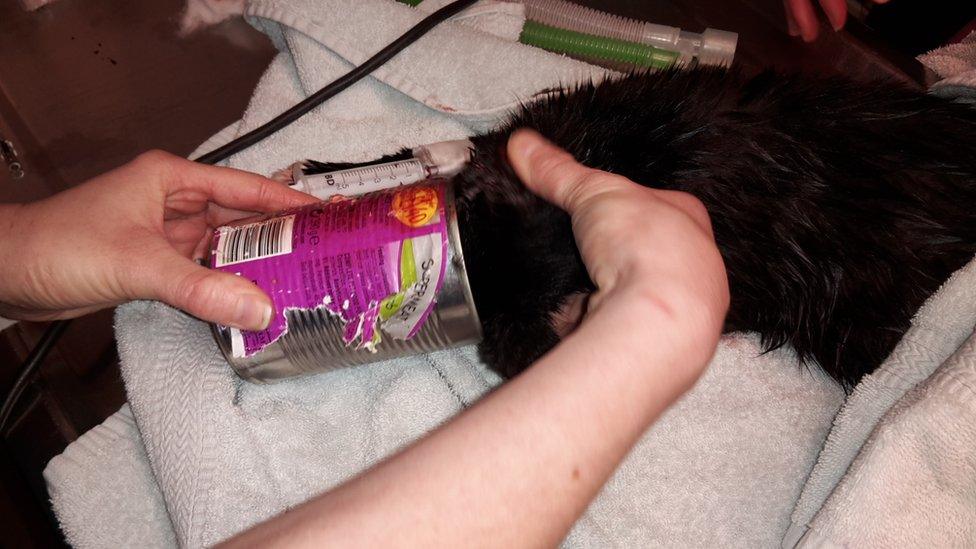London Fire Brigade spends £202k per year saving animals
- Published
Crews were called to an animal rescue every 16 hours
Animal rescues cost London Fire Brigade (LFB) £202,446 in the past year, it has been revealed.
London fire crews were called to rescue 542 animals - including dogs, foxes and snakes - between July 2015 and June 2016, figures from the service show.
About half of the rescued animals were cats, but the brigade also spent £978 rescuing two hamsters and £1,304 saving four squirrels.
LFB said people should call the RSPCA first for animal rescues.
According to the brigade, it costs £326 per hour to fund a fire engine and crews were called to an animal rescue every 16 hours on average in the past 12 months.
Pet owners are not charged for animal rescues.
One of the hamsters was stuck in a cavity wall in Mawneys, Havering, and the other was trapped below floorboards in a house in Merton, south west London.
The squirrels were trapped in a bathroom in Streatham Wells in Lambeth, inside the wall of a flat in Bow West, inside a third-floor flat in Canning Town South and in the boiler unit of a flat in Swiss Cottage.
On 5 August firefighters rescued Binky the cat, who gave birth behind a fireplace after falling down a chimney from the roof of a house in Wood Green, north London.
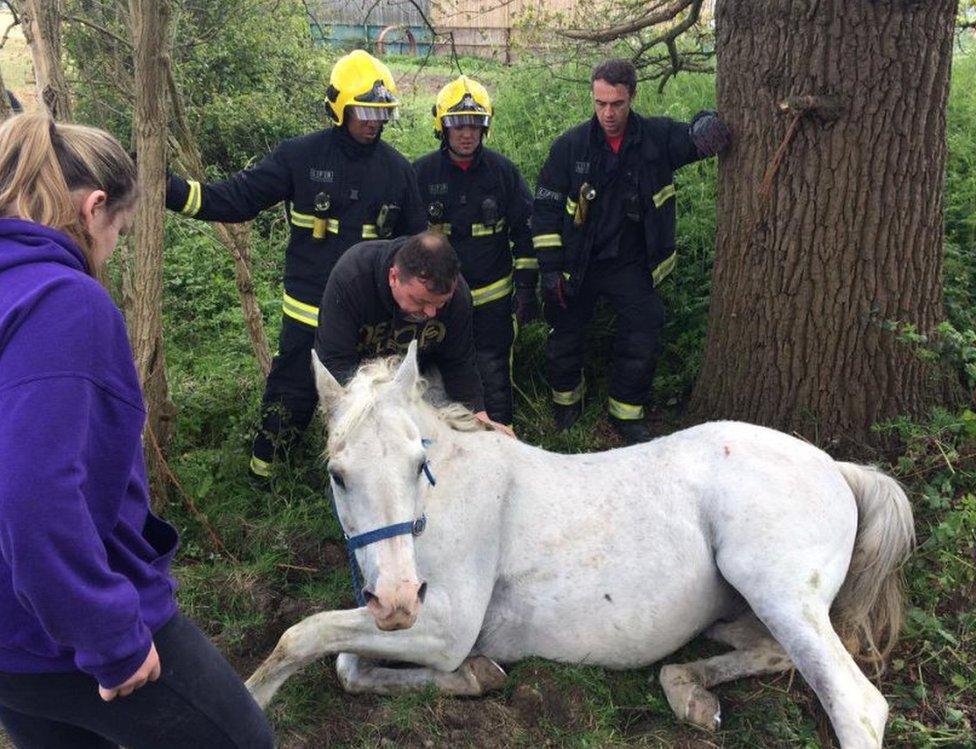
Mischief the horse was rescued from a ditch in Pinner, north west London, in April 2015
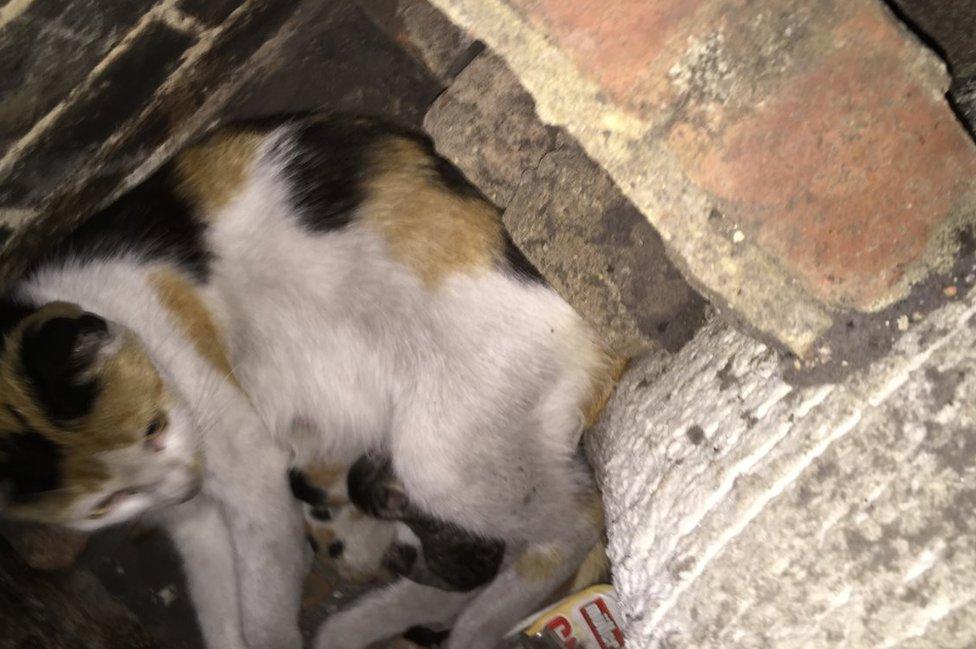
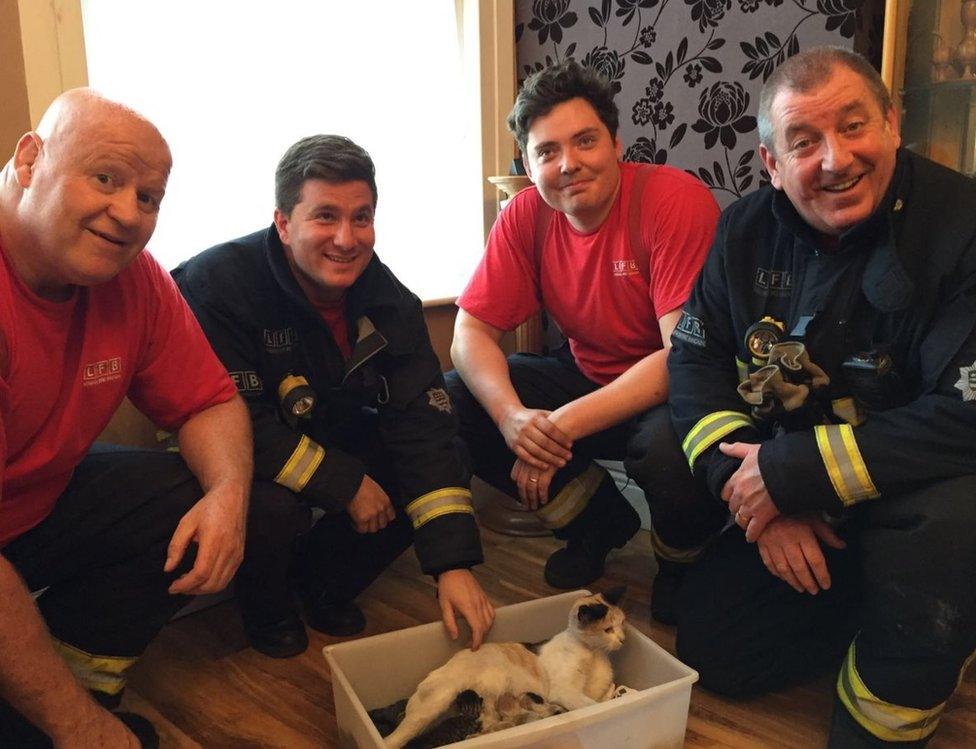
Binky had four kittens, who were named Ron, Chris, Pete and Jim after the firemen who rescued them.

Unusual animal rescues:
•A ferret trapped in a lift shaft in Kingston
•A snake loose in a flat in Holloway
•A tortoise trapped in New Malden
•A chicken stuck in a tree in Stockwell
•A squirrel trapped in a gutter in Hornchurch

LFB said animal rescues had decreased by 20% in the past five years, but added the figure was still too high.
London Fire Commissioner Ron Dobson, said: "If there is a cat up a tree, or an animal stuck anywhere, the first port of call should always be the RSPCA.
"When firefighters are out rescuing animals, they're not available to attend real emergencies."
The service recently ran a campaign called "I'm An Animal, Get Me Out of Here" to encourage Londoners to call the RSPCA when they see an animal in difficulty.
Chief Superintendent of the RSPCA, John Grant, said the service was "always incredibly grateful for any help we receive from the fire service".
- Published31 July 2016
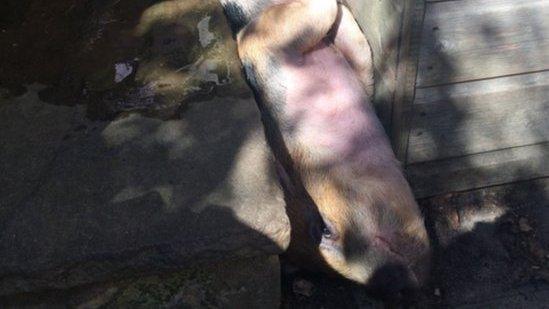
- Published12 April 2016
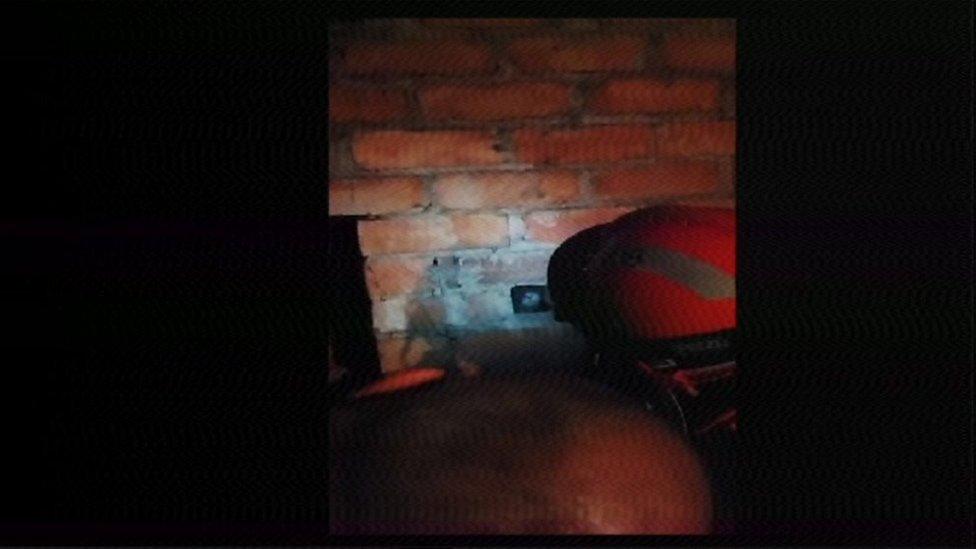
- Published31 December 2015
